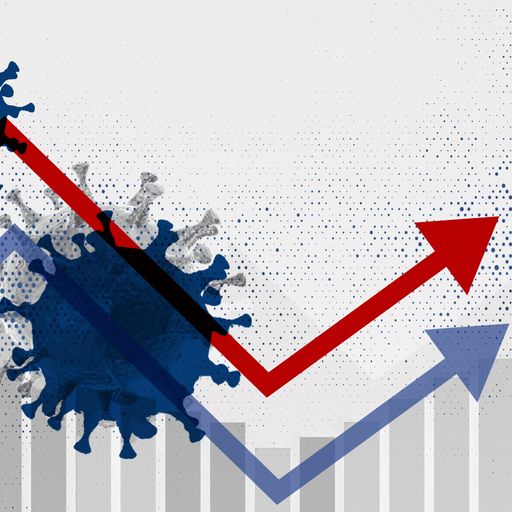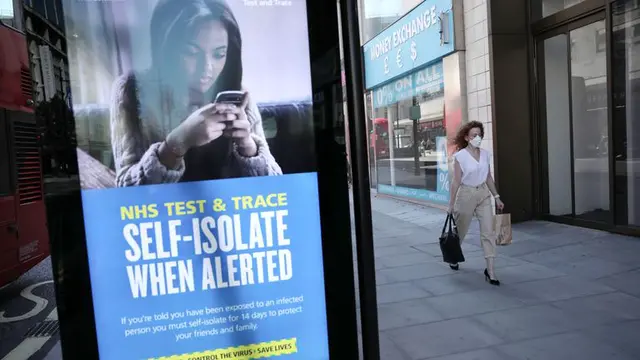Public Health England has described as "misleading" research which suggests a link between an estimated 1,500 coronavirus deaths and a spreadsheet glitch that delayed thousands of people being referred to the Test and Trace system.
The figure accounts for around 21% of all
COVID-19
related deaths in the six weeks following the discovery of the problem on 3 October, according to a University of Warwick study.
Over the same period, the error was also linked to more than 125,000 additional infections - and researchers say these are "conservative estimates".

Data can save lives, data can cost lives - and this latest testing blunder will likely prove it
Between 20 September and 2 October,
at least 15,841 people
who tested positive were not referred to the contact tracing system.
It happened because of a limit on the number of rows in the Excel spreadsheet system being used to collate cases.
It meant an estimated 48,000 close contacts were not immediately reached and may have been spreading the virus.
Three days after the error was discovered,
almost half
of those missed still hadn't had their contacts traced.
Researchers said the delayed referrals "likely propelled England to a different stage of COVID-19 spread at the onset of a second pandemic wave".
Some areas had more "missed"
coronavirus
patients than others, particularly the North West.
In the worst-affected areas there was a sharp increase in infections and linked deaths, the study suggests.
It also says the delay in contact tracing was associated with a worsening of the regional performances of the Test and Trace system.
The researchers have chosen a mid-point estimate for the number of additional infections in each region, as is standard in data science, although the range of estimates in some areas is very broad.
The findings underscore the importance of contact tracing, which can have a "strong impact" on transmission, the study says.
One of the authors, Harvard Business School assistant professor Dr Thomas Graeber, said: "The large size of the estimated effects implies that a well-functioning and robust contact tracing system may be even more important to fight COVID-19 than we previously thought."
**:: Subscribe to the Daily podcast on **
Apple Podcasts
**, Google Podcasts
, Spotify
, Spreaker
**
However Isabel Oliver, director of Public Health England's National Infection Service, said that even the Warwick team accepts there is "low confidence in their conclusions".
She said: "This issue was taken extremely seriously by NHS Test and Trace and PHE and we worked quickly to resolve it and investigate thoroughly.
"However these are misleading estimates. It's not appropriate to conclude that an increase in cases and deaths at the time was caused by this issue and the authors themselves accept that there is low confidence in their conclusions.
"Our own analysis of the data suggests that the delay in the upload of data files coincided with the increases in cases linked to the return to university and the epidemiological trends we were already seeing in parts of the country.
"Every person received their test result as they would at any other time along with advice to self-isolate. The national guidance states that people with symptoms and their households should immediately self-isolate. In practical terms we know that most close contacts are household contacts, so they would have been aware of their need to isolate.
"The majority of cases affected by this issue were also contact traced within five days, which means it is unlikely the delay led to their close contacts transmitting the virus unknowingly given typical incubation periods."
Test and Trace boss Baroness Dido Harding has said the service is "constantly evolving and improving".
 简体中文
简体中文

